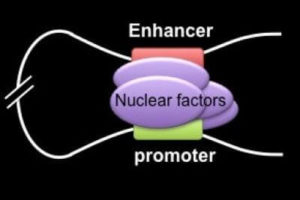american society of hematology
Researchers identify genetic mutation responsible for rare cancer
Scientists at Dana-Farber Cancer Institute have identified a gene mutation that underlies the vast majority of cases of Waldenstrom’s macroglobulinemia, a rare form of lymphoma that has eluded all previous efforts to find a genetic cause.
…
B cell receptor inhibitor causes chronic lymphocytic leukemia remission
A new, targeted approach to treating chronic lymphocytic leukemia has produced durable remissions in a Phase I/II clinical trial for patients with relapsed or resistant disease, investigators report at the 53rd Annual Meeting of the America…
UIC researcher unveils new approach to blocking malaria transmission
University of Illinois at Chicago researcher Dr. John Quigley will describe a promising new approach to blocking malaria transmission during the American Society of Hematology’s annual meeting in Orlando, Fla.
Quigley will speak at a press briefin…
Improvement in prediction of blood clots in cancer patients
(WASHINGTON, September 9, 2010) — For cancer patients, who have an increased risk of developing venous thromboembolism (VTE) due to a hyperactive blood coagulation system, there is now an enhanced risk model to predict their chance of developing b…
Gene signature identifies leukemia patients who should avoid transplants
An international team of researchers has used a gene test to identify certain patients with adult T-cell acute lymphoblastic leukemia (ALL) who can be successfully treated with chemotherapy alone and should not be subjected to the rigors of bone marrow transplants. The researchers found that these patients survived for at least three years after being treated with intensive chemotherapy. It was previously known that only slightly over half of the patients with this disease could be cured with chemotherapy. Adult ALL patients often undergo transplants in an effort to beat back the stubborn disease. Until now there was no way to identify those who have a more favorable outlook and shouldn’t undergo risky bone marrow transplantation.

